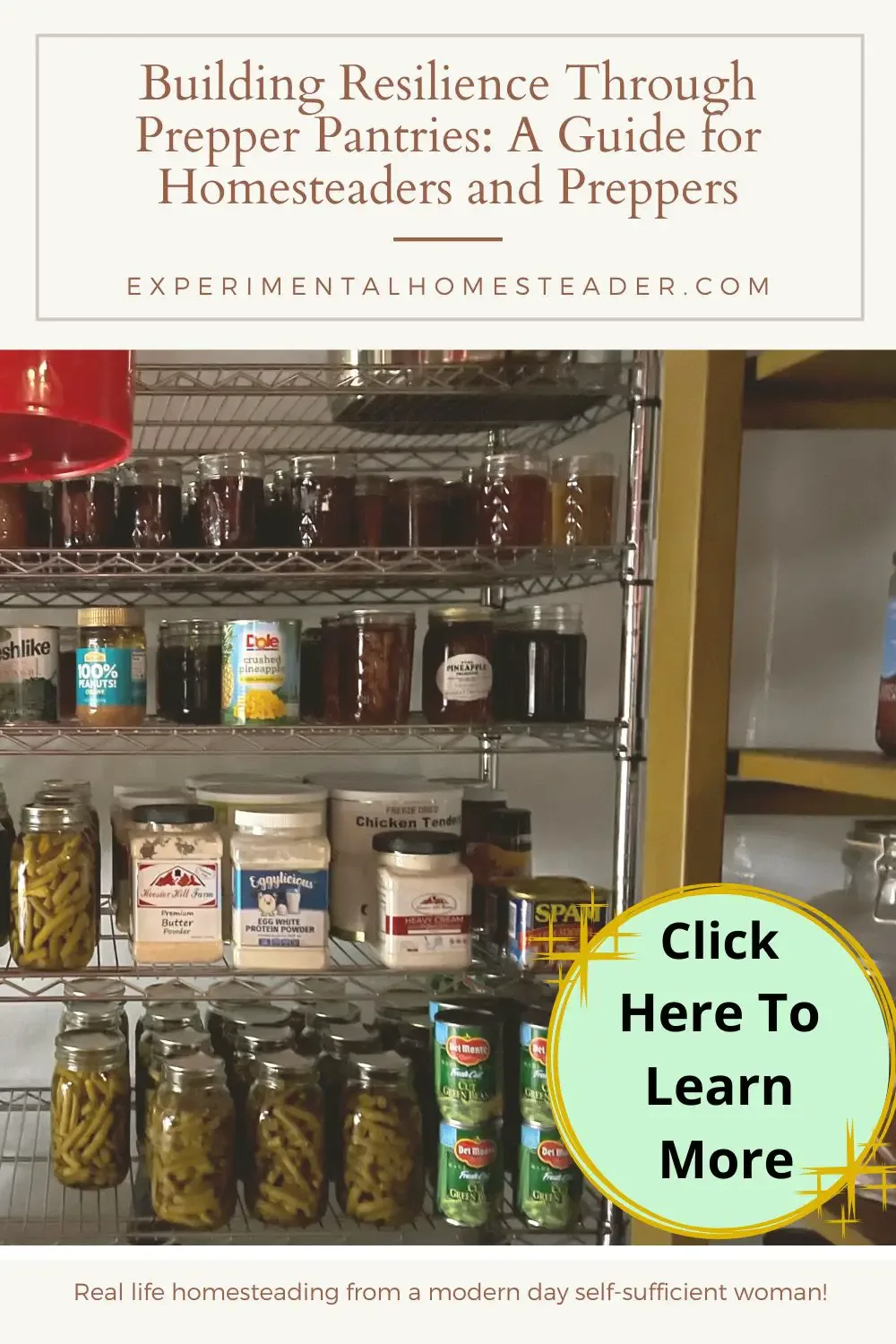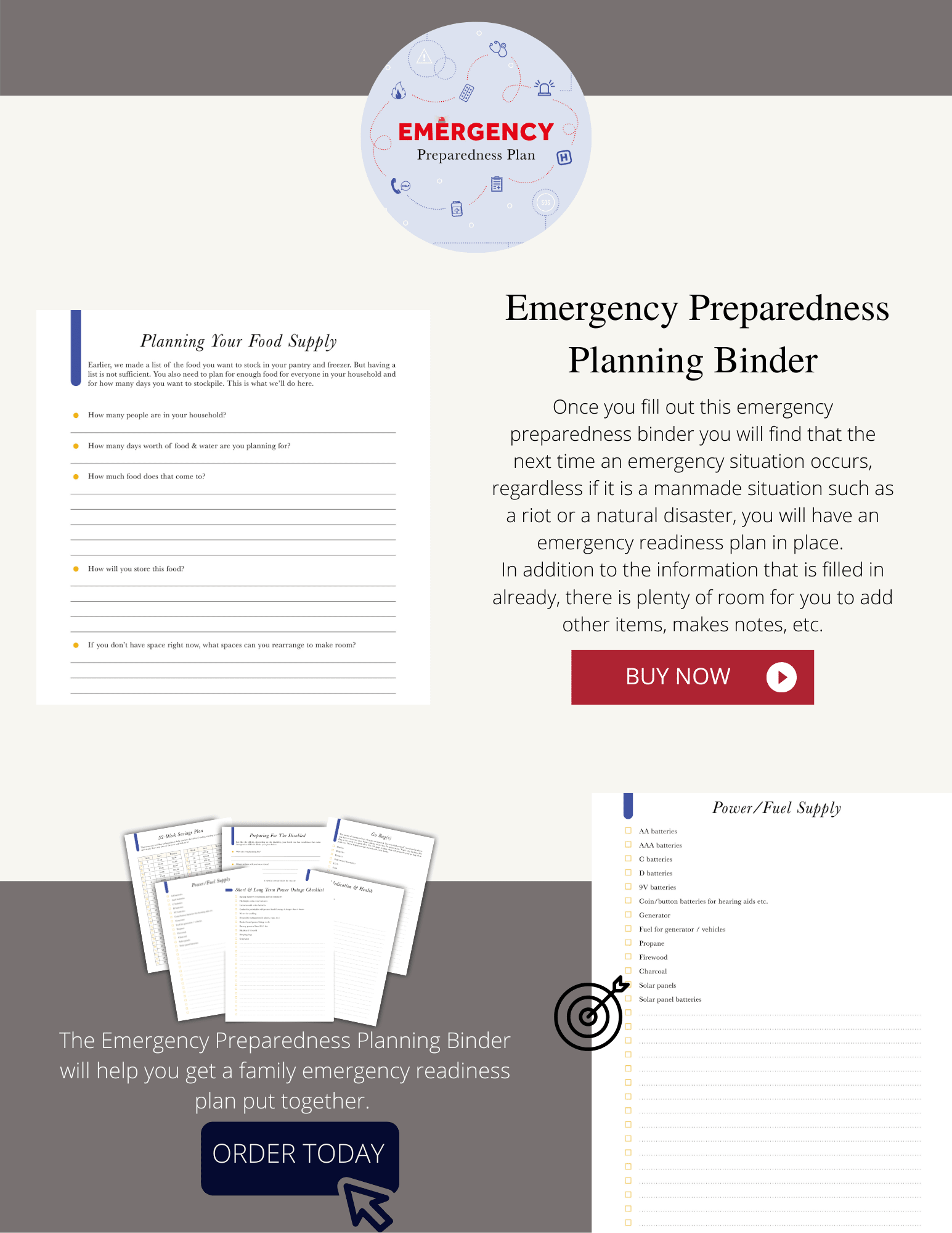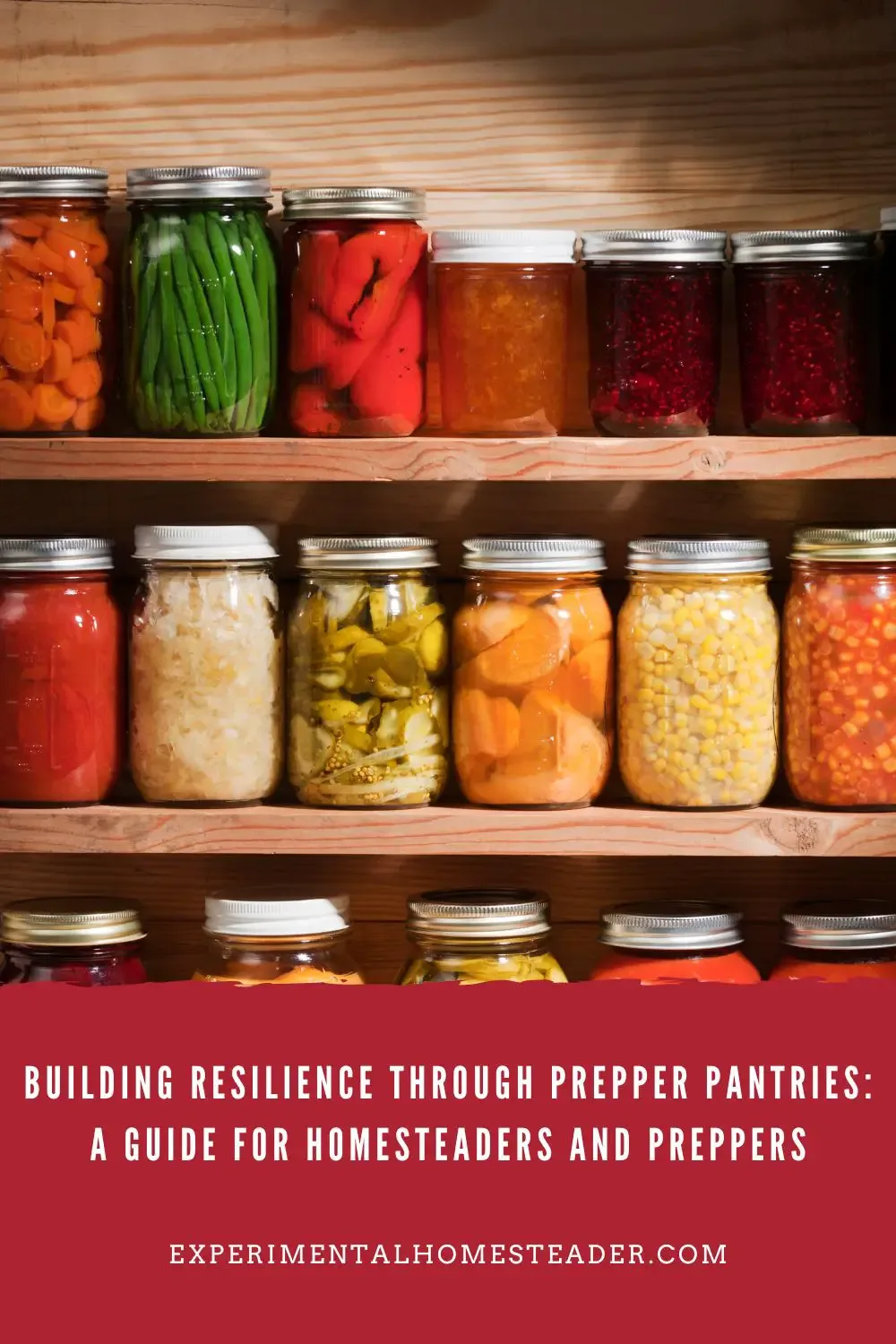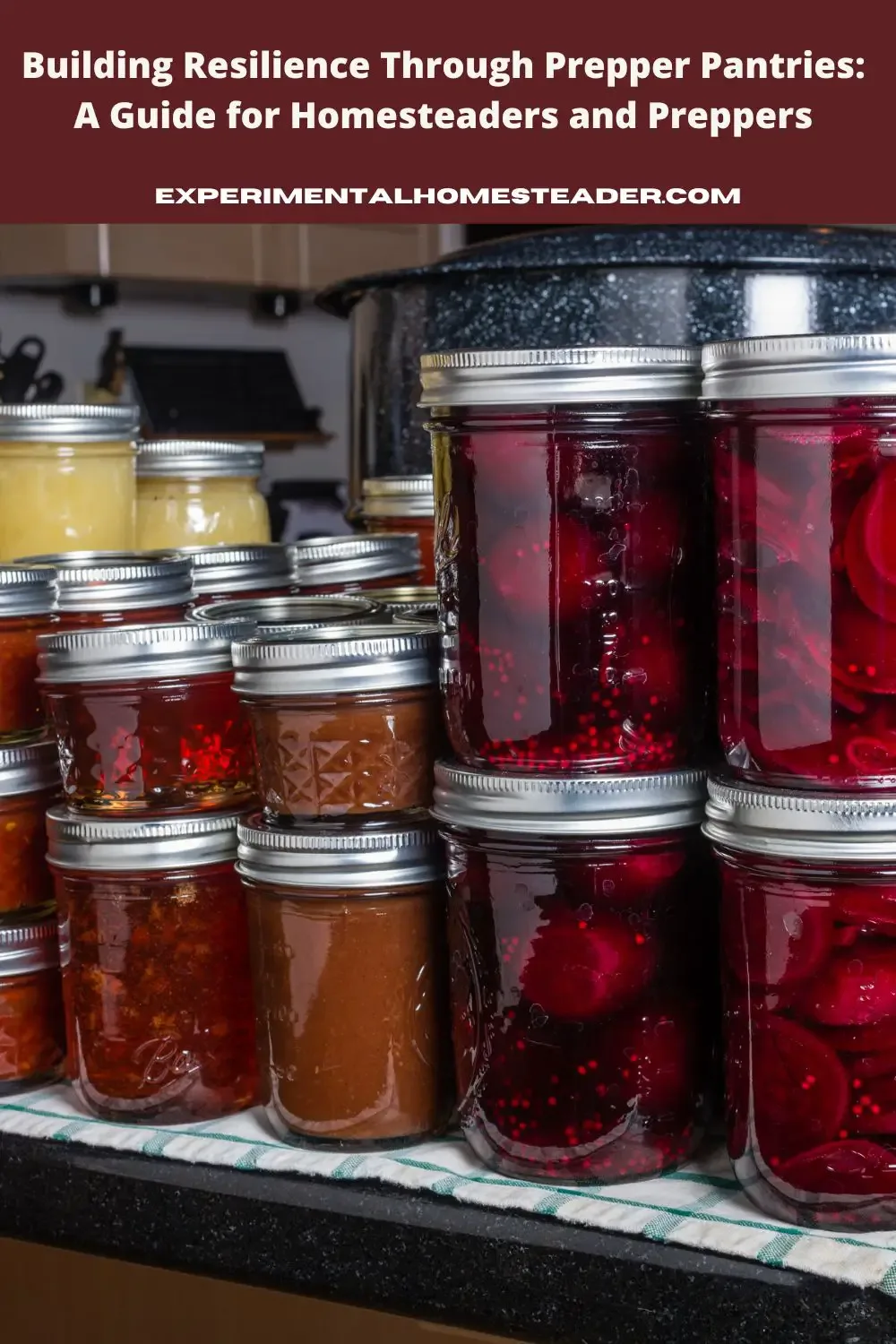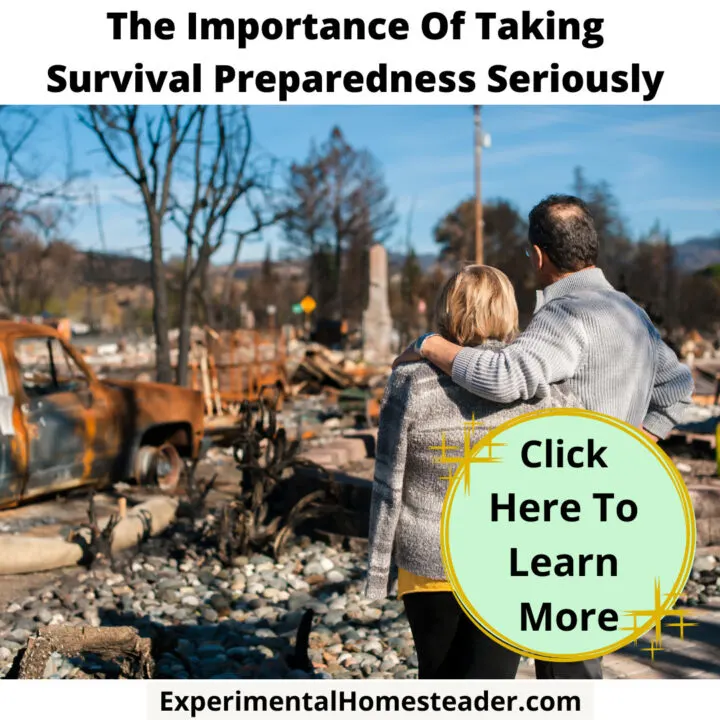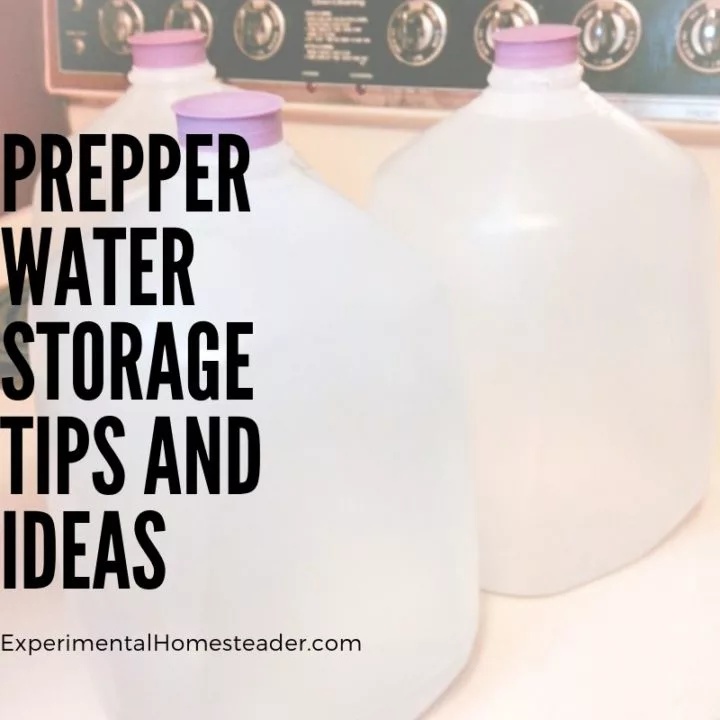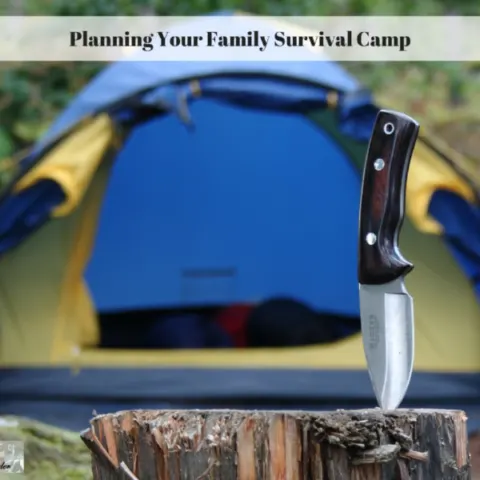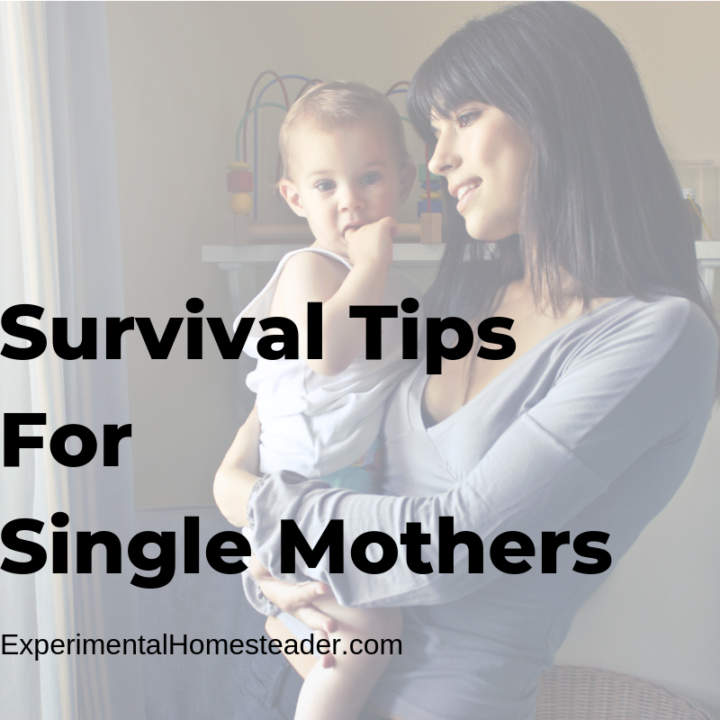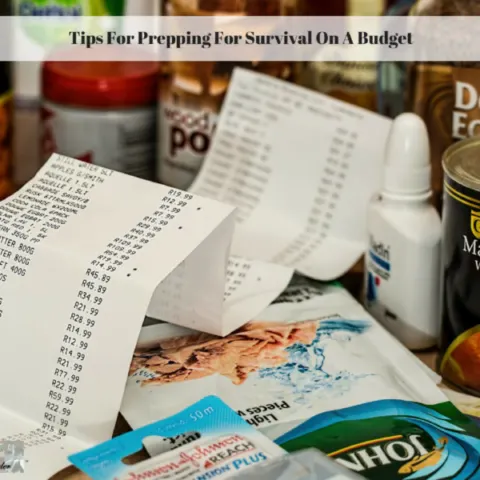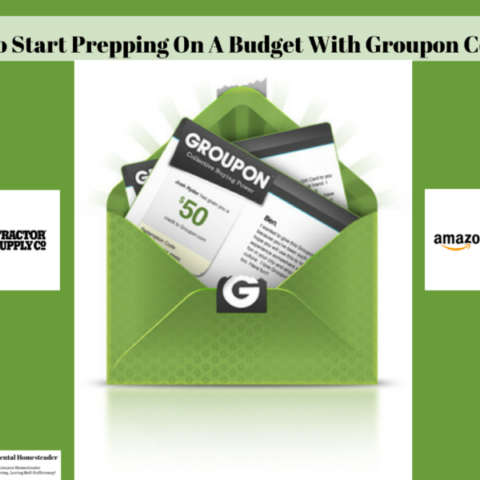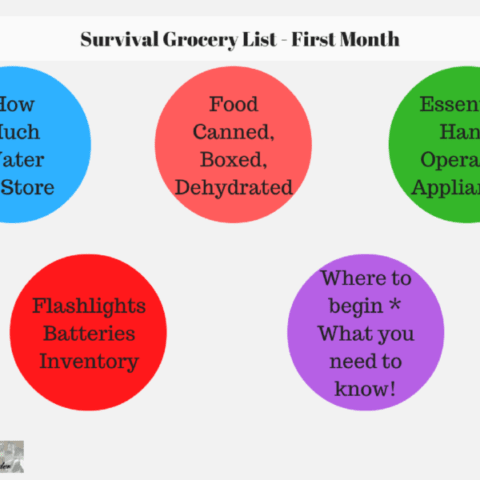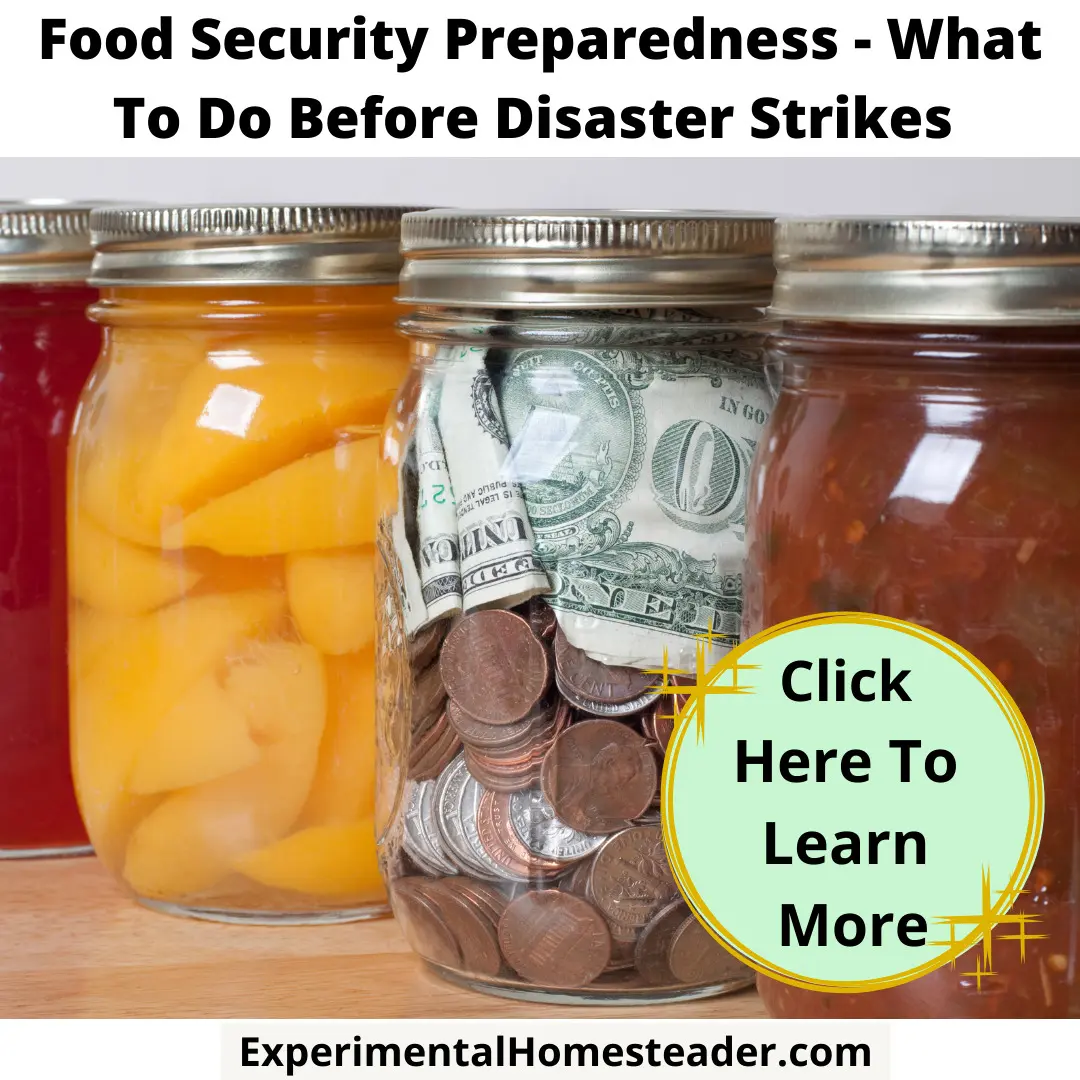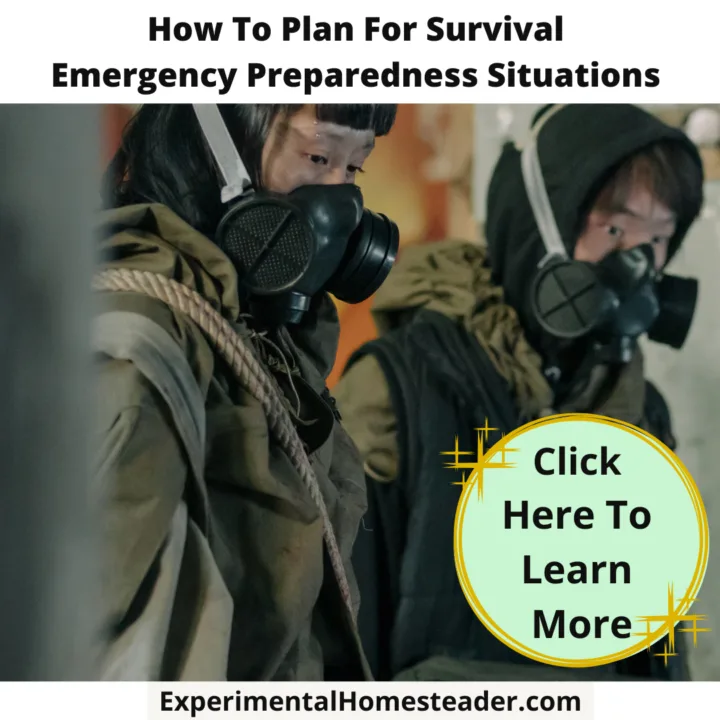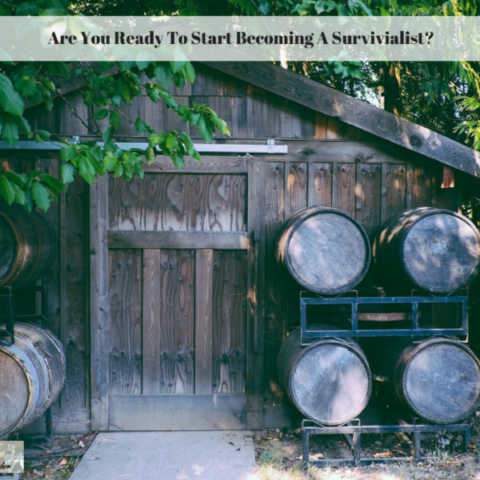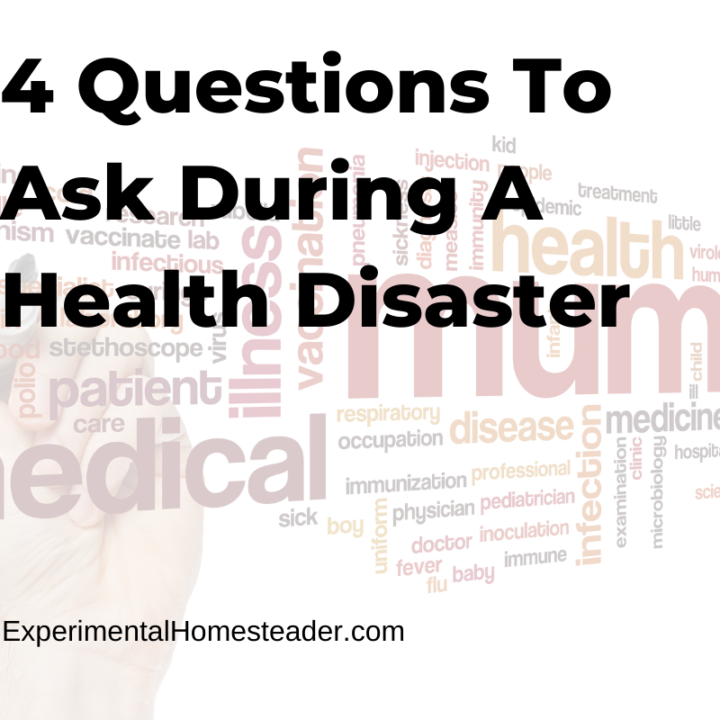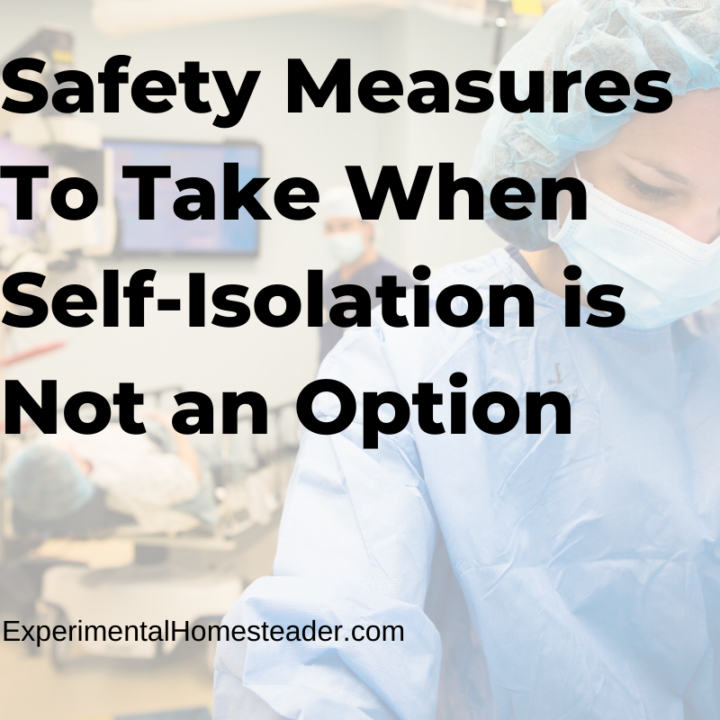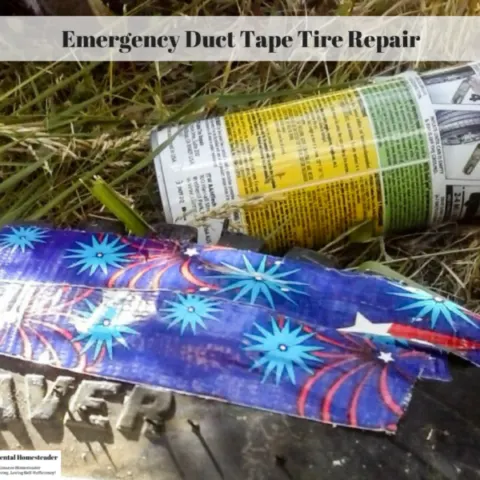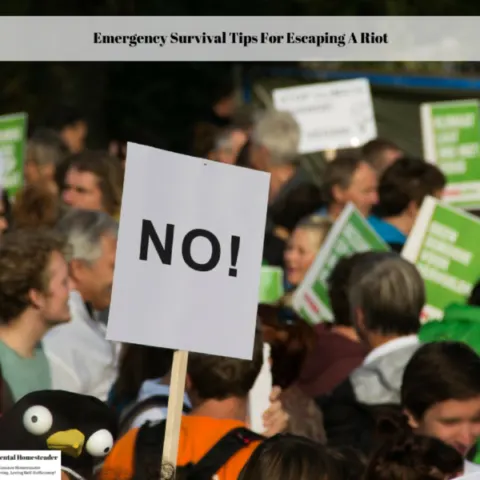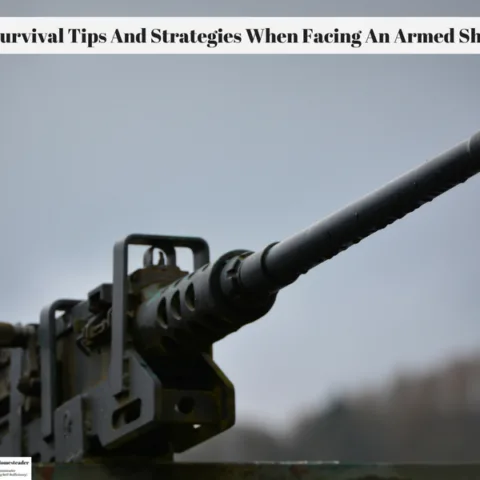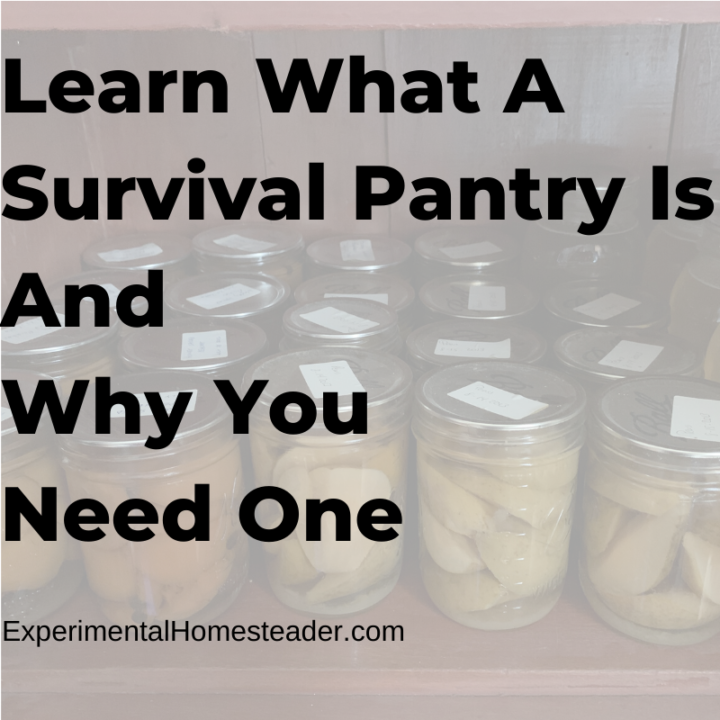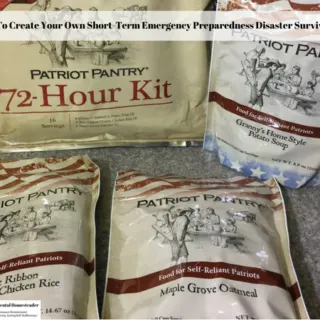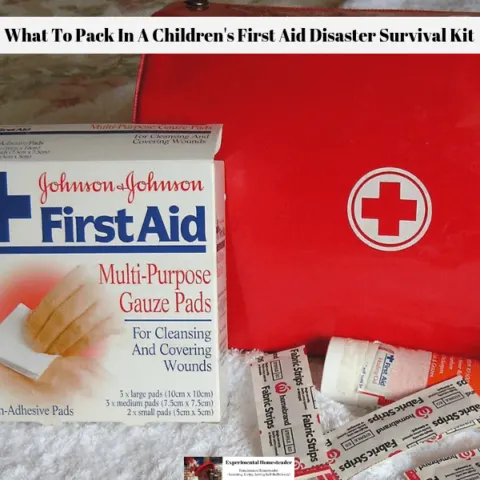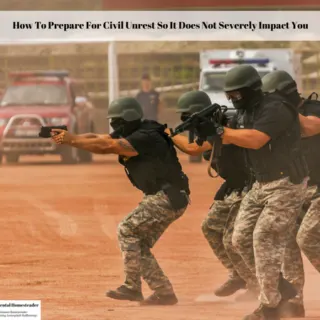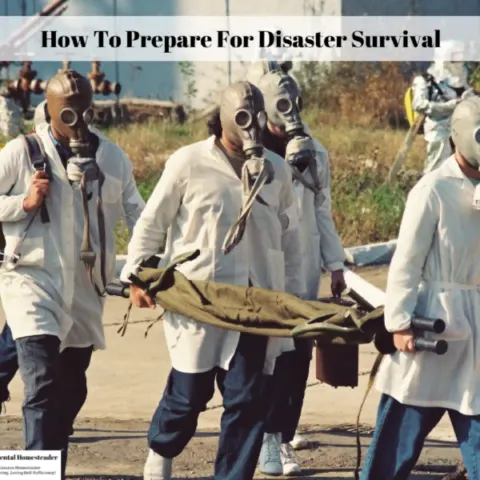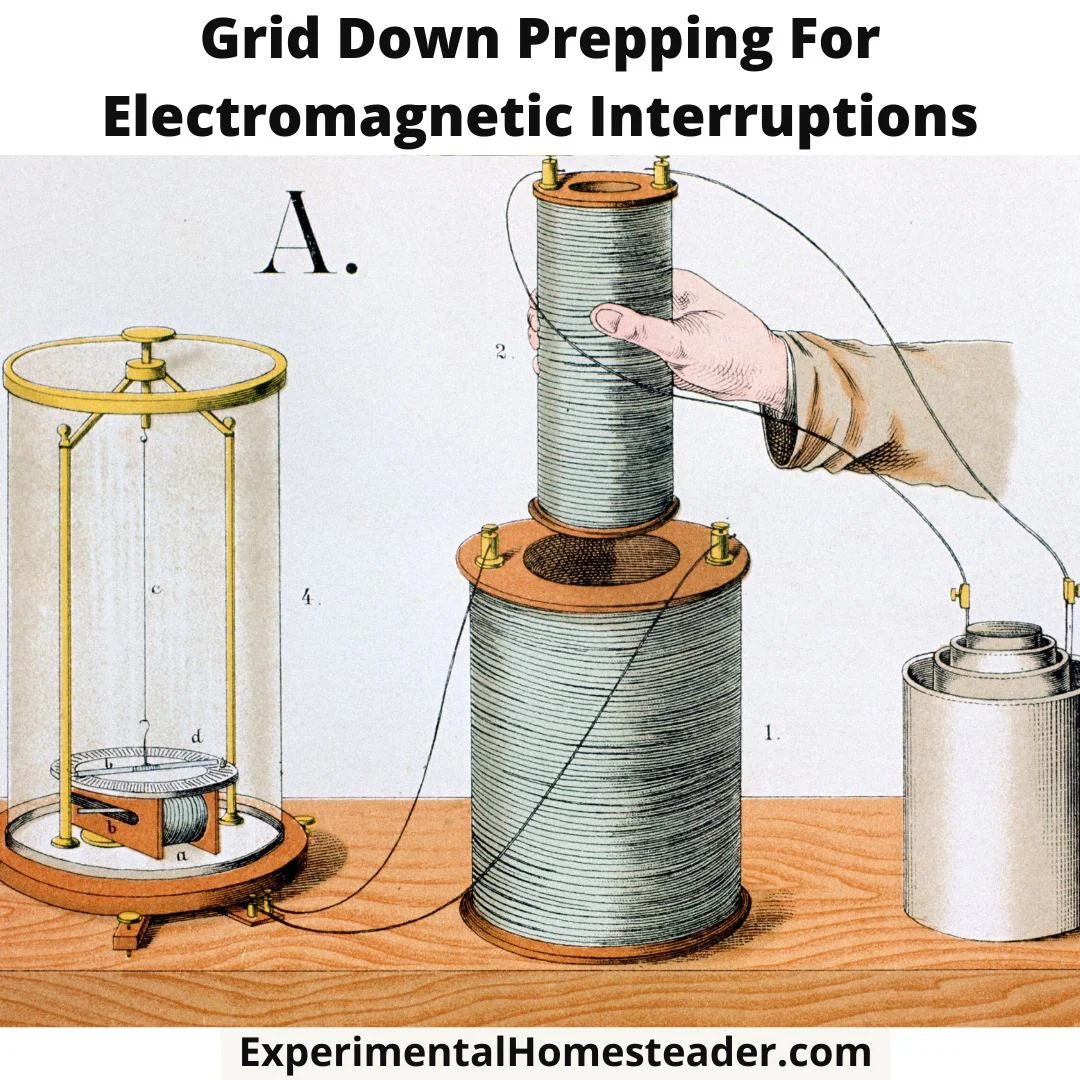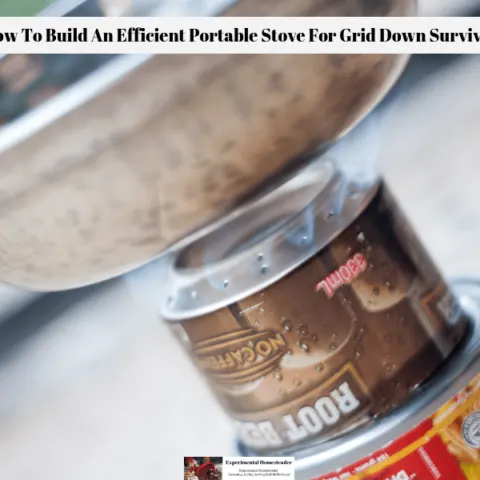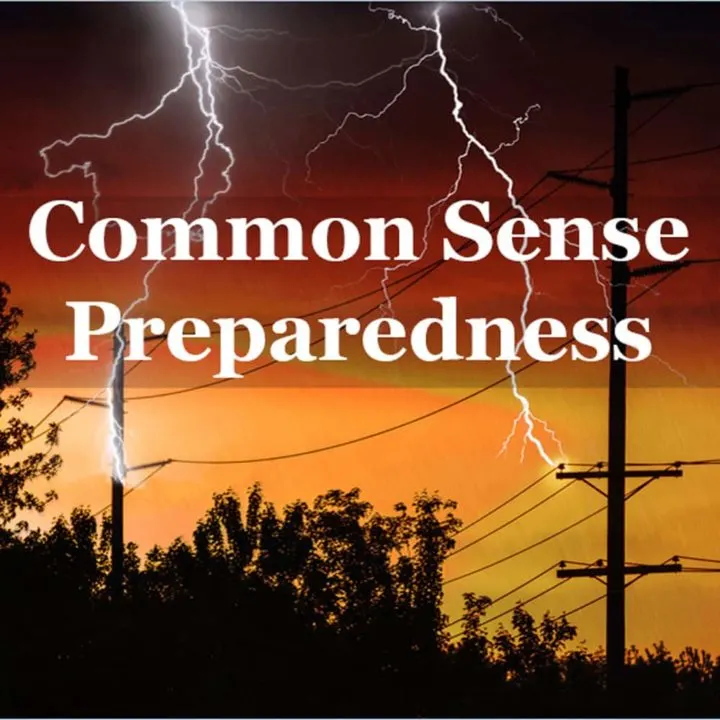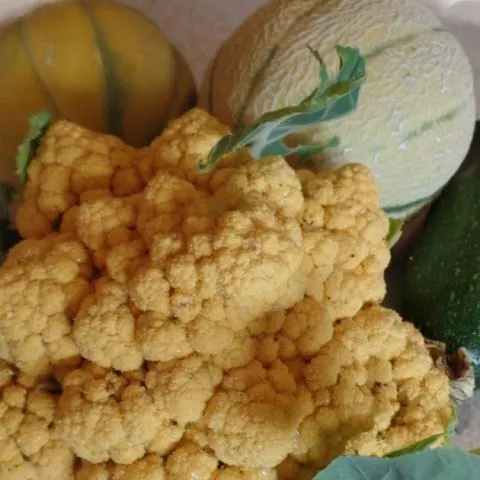In today's unpredictable world, the importance of preparedness cannot be overstated.
Emergencies, whether they be natural disasters, economic crises, or unforeseen events, can strike at any moment, leaving us to fend for ourselves and our loved ones.
One of the most essential aspects of preparedness is the prepper pantry – a strategic and well-thought-out reserve of essential supplies that can make all the difference during times of turmoil.
This comprehensive guide is aimed at homesteaders and preppers, both experienced and those just beginning their journey.
We will delve into the core concepts of prepper pantries, exploring their significance, who can benefit from them, and when they become essential.
By the end, you'll have a solid understanding of how to build resilience through prepper pantries and ensure the safety and well-being of your family in uncertain times.
The Essence of a Prepper Pantry
Imagine your prepper pantry as the cornerstone of your self-sufficiency journey.
While it may resemble a conventional pantry, it surpasses it in strategic design and long-term sustainability.
This sanctuary stores not just food but hope and assurance, specifically crafted to withstand adversity.
Consider it an assemblage of shelf-stable essentials – dry rice, beans, canned goods, dehydrated or freeze-dried foods, and more.
A prepper pantry serves as a bastion against the unknown, a resource to lean on during crises.
It's not just a collection of goods; it symbolizes the unwavering spirit of preparedness and the resilience that dwells within those who dare to face the future with determination and foresight.
Who Benefits from a Prepper Pantry?
The beauty of a prepper pantry lies in its inclusivity; it's an investment that knows no boundaries.
Regardless of your geographical location, unforeseen challenges can arise, underscoring the importance of preparedness.
If you're situated in an area prone to risks or instability, having a prepper pantry isn't just prudent – it's crucial.
However, this isn't just about survival; it's about maintaining the well-being of your family when circumstances take an unexpected turn.
Families, whether large or small, can find solace in a well-stocked prepper pantry.
Individual dietary restrictions and even those with finicky eaters can cater to their specific needs.
Contrary to the misconception that prepper pantries only consist of bland sustenance, they're flexible canvases that allow you to stock up on supplies that align with your family's preferences.
While preparedness is paramount, enjoying what you consume shouldn't be overlooked.
The Prepper Pantry: A Lifeline in Emergencies
When does the need for a prepper pantry arise?
The answer is simple: during emergencies of all kinds.
Whether it's an unforeseen job loss, a natural disaster, a prolonged power outage, or an epidemic, your prepper pantry becomes your fortress of security.
The extent of your preparation determines the breadth of its application.
With careful consideration, your prepper pantry evolves into more than just a repository of food; it becomes a lifeline for your family during life-altering situations.
Before you embark on this journey of preparedness, certain aspects require attention:
Storage Matters
Proper storage is the foundation of a reliable prepper pantry.
Choose a cool, dry place and ensure your supplies are protected from pests.
The last thing you want is to discover that your carefully preserved goods have been compromised.
Quantity and Variety
Calculate the quantities required to sustain your family for a specific duration.
Embrace variety, as catering to preferences fosters positivity during challenging times.
It's not just about calories; it's about nourishment, both physically and mentally.
Building a Secure Future Through the Power of Preparedness
In the dynamic and ever-evolving landscape of our world, uncertainties linger like unwelcome guests.
However, in the face of these uncertainties, there exists a beacon of hope – the concept of prepper pantries.
These practical storehouses offer us a path to navigate the unpredictable with unwavering confidence.
Preparedness is a multifaceted concept that extends beyond the mere act of stockpiling.
It's a philosophy that revolves around ensuring the well-being and security of those we cherish most – our loved ones.
It is, in essence, a promise to shield them from the storms of uncertainty that may lie ahead.
As you delve into the invaluable insights shared within these pages, we extend to you an open invitation.
It's an invitation to embark on a journey of preparedness, one that will not only fortify your pantry but also your family's resilience and security.
It's a journey that celebrates the strength of foresight and the enduring commitment to safeguarding what matters most.
Join the Conversation: #PrepperPantryInsights
Preppers and homesteaders form a vibrant community committed to safeguarding their families and fortifying their resilience.
To encourage dialogue and mutual support on this journey, we invite you to share your thoughts, experiences, and questions on social media using the hashtag #PrepperPantryInsights.
I would also like to invite you to join our Facebook Group Homesteading And Prepping - Learning, Living, Loving Self-Sufficiency.
Together, we can empower one another, exchange insights, and strengthen our preparedness.
Building resilience through prepper pantries is not just a solitary endeavor; it's a collective effort to ensure a secure future for ourselves and our loved ones.
We hope you found this guide enlightening and inspiring.
Share this article, share your insights, and let's continue the conversation using these hashtags - #PrepperPantryInsights #HomesteaderPreparedness #SecureTomorrow.
FAQ: Building Resilience Through Prepper Pantries
Q: What is a Prepper Pantry, and why is it essential for homesteaders and preppers?
A: A Prepper Pantry is a carefully curated stockpile of essential food and supplies, crucial for ensuring self-sufficiency during emergencies or crises. It's a lifeline for homesteaders and preppers to stay resilient.
Q: How do I get started with building a Prepper Pantry?
A: Begin by assessing your family's needs and creating a detailed inventory of necessary items. Gradually accumulate non-perishable foods, water, medical supplies, and other essentials.
Q: What are the key differences between a working pantry and a long-term pantry?
A: A working pantry contains items used in daily meals and aims for about a month's supply. A long-term pantry, on the other hand, stocks non-perishable bulk supplies designed to last for extended periods, potentially months or even years.
Q: What should I prioritize stocking in my Prepper Pantry?
A: Prioritize items with long shelf lives such as dry grains, canned goods, bottled water, first-aid supplies, and tools for cooking and survival.
Q: How do I maintain and organize my Prepper Pantry effectively?
A: Regularly check and rotate items to ensure nothing expires. Use the "first in, first out" (FIFO) principle. Keep the pantry organized with labels and a clear inventory system.
Q: What are the advantages of a working pantry?
A: Working pantries are versatile, customizable, and perfect for beginners. They encourage gradual expansion and experimentation with shelf-stable foods.
Q: What are the downsides of a working pantry?
A: Working pantries focus on short-term needs and may contain perishable items. They typically offer essentials for about a month and are not suitable for long-term emergencies.
Q: What are the advantages of a long-term pantry?
A: Long-term pantries provide stability for many years, making them ideal for extended crises. They offer comprehensive prepper coverage and peace of mind.
Q: What are the downsides of a long-term pantry?
A: Creating a long-term pantry can be costly, and you may have limited control over food quality. Highly preserved foods might not have the most appealing taste.
Q: How can I find the right balance between a working and a long-term pantry for my family's needs?
A: Consider your circumstances, available space, budget, and the duration you want to be prepared for. Striking a balance that suits your unique situation is key.
Q: What other items besides food should I include in my Prepper Pantry?
A: In addition to food, ensure you have medical supplies, hygiene products, power sources, tools, and educational resources like survival guides and books.
Q: How do I calculate the right amount of supplies to store in my Prepper Pantry based on the size of my family?
A: Calculating the ideal amount of supplies for your family involves estimating daily consumption, considering the duration of emergency preparedness, and tailoring quantities to your family's specific needs. It's advisable to start with a baseline supply for a week and gradually build from there. Factors such as dietary preferences, age, and any medical requirements should be considered.
Q: How can I make my Prepper Pantry family-friendly and cater to dietary restrictions?
A: Prioritize foods your family enjoys and accommodate any dietary restrictions or allergies. Addressing food allergies and dietary restrictions is crucial. You can build a Prepper Pantry that accommodates these needs by carefully selecting allergen-free and specialty items. Always check product labels and prioritize items suitable for your family members with dietary concerns. Select versatile items that can be used to prepare a variety of meals.
Q: Are there any tips for sourcing affordable, high-quality prepper pantry items?
A: Yes, you can maximize your budget by shopping sales, buying in bulk, utilizing coupons, and exploring discount or warehouse stores. Additionally, consider growing your own produce and preserving it, which can save money while ensuring quality.
Q: How often should I rotate items in my Prepper Pantry to ensure everything stays fresh and usable?
A: Regular rotation is essential to maintain freshness. A general guideline is to check and rotate pantry items every 6-12 months. Keep a record of purchase dates and establish a system to use older items before new ones. This practice ensures that your pantry remains well-stocked and items don't go to waste.
Q: What are some creative ways to utilize items from my Prepper Pantry in everyday meals to keep the stock fresh?
A: Get creative with your cooking by incorporating pantry items into your daily meals. For example, you can use canned vegetables in stews, soups, or casseroles. Dry rice and pasta can serve as staples in various dishes. Experimenting with recipes that include your prepper supplies keeps your stock fresh and provides variety in your meals.
Q: What's the best way to involve my family in Prepper Pantry preparations?
A: Encourage family members to participate in the planning, organizing, and learning about the pantry's contents. Hold occasional drills or discussions about emergency procedures.
Q: How do I teach my children about the importance of the Prepper Pantry and emergency preparedness without causing unnecessary fear or anxiety?
A: Educating children about preparedness should be done in a reassuring and age-appropriate manner. Use positive language and emphasize the importance of being ready for various situations. Involving children in age-appropriate preparedness activities, like assembling emergency kits, can help them feel more secure rather than anxious.
Q: How can I ensure my Prepper Pantry remains a well-kept secret to avoid potential looters during an emergency?
A: Securing your Prepper Pantry is essential. You can maintain secrecy by choosing a discreet location, such as a basement or cellar, and keeping it well-concealed from visitors. Avoid discussing your pantry openly, both in person and on social media, to minimize the risk of attracting unwanted attention during emergencies.
Q: Are there any local, state, or national regulations I should be aware of when building and maintaining a Prepper Pantry?
A: It's advisable to research local, state, and national regulations regarding the storage of food and emergency supplies. While many countries and regions allow private Prepper Pantries, some restrictions may apply, particularly for bulk storage of certain items. Compliance with any relevant regulations ensures legality and safety.
Remember, building a Prepper Pantry is a step-by-step process that empowers you and your family to become more resilient in the face of uncertainty.
Emergency Planning And Preparedness Tips
The Importance Of Taking Survival Preparedness Seriously
Survival preparedness needs to be taken seriously because you never know when a natural disaster or a man-made catastrophe might happen. A disaster can occur when you least expect it, and this is why it is extremely important to be well-prepared before you are caught off-guard.
Prepper Water Storage Tips And Ideas
Check out these prepper water storage tips and ideas to learn the options for storing water or having access to clean water should you need to bug out.
How To Stay Warm In Winter If The Power Goes Out
Power outages happen. The key is to be prepared ahead of time so you can stay warm in winter if the power goes out or the grid goes down.
Planning Your Family Survival Camp
Family survival camps are an essential part of wilderness survival. Don't wait for shtf before you make a plan and gather survival gear.
Emergency Survival Tips for Single Mothers
Learn how to start preparing for a potential crisis situation by following these emergency survival tips for single mothers.
Tips For Prepping For Survival On A Budget - Experimental Homesteader
Prepping for survival on a tight budget is possible. The first step is to prepare your emergency readiness plan so you know what supplies you need.
How To Start Prepping On A Budget With Groupon Coupons
Learn how to start prepping on a budget and get those basic homesteading supplies plus the gift items you need using Groupon Coupons.
How To Survive During Economic and Political Chaos
Learn how to survive during economic and political chaos. Having a plan in place to keep you and your family safe is essential.
Survival Grocery List - First Month
Find out where to start your survival grocery list. The first month lays the ground work for basic survival needs and your emergency survival food list.
Food Security Preparedness - What To Do Before Disaster Strikes
Learn what food security preparedness skills you need to survive any natural or man-made disaster, and why you should grow your own food.
How To Plan For Survival Emergency Preparedness Situations
These fifteen critical survival scenarios are exactly the reason you need to plan for survival emergency preparedness situations today.
Are You Ready To Start Becoming A Survivialist?
Becoming a survivalist is a lifestyle and mindset change. You must consider the pros and cons of prepping for survival because it does require commitment.
10 Essential Prepper Supplies For Home Remedies
Emergencies such as natural distasters are happening at an alarming rate these days. Be prepared by stocking up on these supplies for home remedies.
9 Tips To Stay Safe During The Human Coronavirus Outbreak
These 9 coronavirus outbreak safety tips are sure to help keep you and your family safe during this rapidly spreading pandemic.
4 Questions To Ask During A Health Disaster
There seems to be a new health disaster every year! Find out what 4 questions to ask during a health diaster to keep your family safe.
9 Quick Pointers To Reduce Your Risk Of Infectious Diseases
Follow these nine quick pointers to help reduce your risk of infectious diseases, including those that are on their way to becoming a pandemic.
Flu Prevention Tips
Learn about some simple flu prevention tips to help you and your family stay healthy this winter. Plus get the facts on just how serious the flu really is.
Safety Measures To Take When Self-Isolation is Not an Option
Learn what to do when self-isolation is not an option because the company you work for does not shut down or you are considered an essential worker.
Running Out Of Toilet Paper? You Need To Read This!
If you're like many people and running out of toilet paper because of the hoarding that is happening, here are some emergency alternatives to try.
Emergency Duct Tape Tire Repair
Have you ever been in an emergency situation where you needed to know how to fix a tire? Try this emergency duct tape tire repair solution!
Weapons To Include In Your Homesteading Self Sufficiency Survival Kit
Learn what weapons - both lethal and non-lethal - to include in your homesteading self sufficiency survival kit. Also learn why you need to include them.
Emergency Survival Tips For Escaping A Riot
Check out these emergency survival tips for escaping a riot! These tips also work well for other types of survival prepping plans.
Secure Your Home From Intruders And Prevent Break-Ins
Today is the day you need to secure your home from intruders. A secure home helps prevent break-ins and keeps your family safe.
Top Survival Tips And Strategies When Facing An Armed Shooter
Active shooter situations are very common these days. This is why understanding the top survival tips and strategies is so important. The more prepared you are and the calmer you are, the more likely you are to survive.
Child Safety Tips
The National Child Safety Council shares information on what child safety tips you need to teach children to keep them safe.
Learn What A Survival Pantry Is And Why You Need One
Create a survival pantry so you can avoid panic buying and feel secure knowing your family has the essentials no matter what emergency situation occurs.
How To Create Your Own Short-Term Emergency Preparedness Disaster Survival Kit
An important part of survival prepping is being ready for any situation - long or short-term. Start prepping today by creating your own short-term emergency disaster survival kit!
What To Pack In A Children's First Aid Disaster Survival Kit
Knowing what to pack in a children's first aid disaster survival kit is important, even if you don't have children. These kits are handy in emergencies.
How To Prepare For Civil Unrest So It Does Not Severely Impact You
Understanding how to prepare for civil unrest is extremely important. Escaping riots and violent demonstrations safely is one of the main reasons to prepare for civil unrest.
How To Prepare For Disaster Survival
Now is the time to learn how to prepare for disaster survival! Disaster prepping helps with everything from nuclear threats to natural disaster survival.
How To Avoid Becoming A Target In A SHTF Situation
Learn how to avoid becoming a target in a potential SHTF situation such as a natural disaster or other unexpected event, such as a pandemic.
Grid Down Prepping For Electromagnetic Interruptions
Grid down prepping for electromagnetic interruptions includes having the right survival gear and using it to protect your electronics.
Preparing for Everyday Emergencies
70+ preparedness articles to help you prepare for everyday emergencies - food and water, emergency power, cold weather, health, first aid and more.
Bloom! Make Gardening Part of your Preparedness Plan
Preparedness is a popular past time and serious concern for a large number of people. While food storage, water, emergency preparedness, and fuel are usually the focus. Have you thought about producing your own food?


